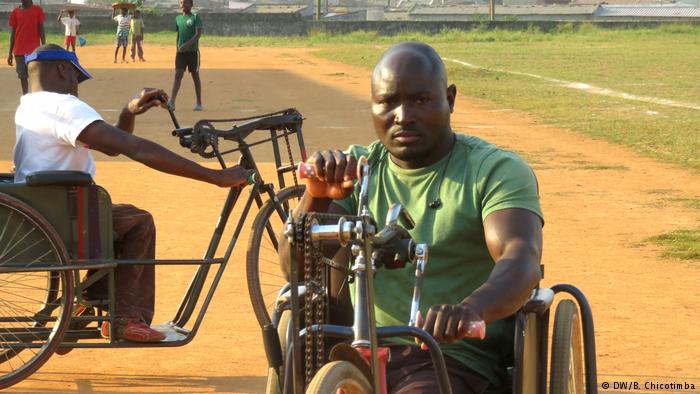Most African countries will not reach SDG child mortality goal
Discrimination against disabled passengers in ‘Chapas’ – Mozambique

Tito Chapo, who lives in the central province of Manica, Mozambique. Photo: DW
In Manica, passenger carriers make no provision for the disabled, who are demanding an end to this discrimination. The police and the Passenger Carriers Association promise to take action.
Disabled people in the central province of Manica face difficulties in travelling by minibus [‘Chapas0]. At stops, they are ignored by carriers, effectively barring them from transport. In desperation, the disabled are demanding help resolving the situation.
Júlio Luís Simione is physically disabled, and says the scenario is on the increase in the region. “It is very difficult to get on a chapa [minibus] with a wheelchair,” he says.
“They sometimes get you on the ‘Chapa’, but the first thing they’ll tell you is they don’t have a luggage compartment. Or they have a boot but will charge you extra for using it, and if you don’t have the money, you end up left on the street.”
Discrimination is not only about transport

Another disabled person, Tito Chapo, says that discrimination against the disabled doesn’t happen only on the ‘chapas’, but in almost all areas.
“It isn’t only the ‘chapas’, it’s general. When a disabled person goes to a shop or a factory to ask for a job, they first look you up and down to gauge your abilities, see if, in fact, you will be able to work. Therefore, we are asking for this thought to get out of the heads of people who think in this way.”
But Chapo agrees with Simione when it comes to the chapas. “Whenever we travel the costs have to be always greater because of the tricycle. Maybe I pay less and the tricycle pays more. How will the tricycle pay more if it’s my feet? ”
Association of Transporters promises measures
President of the Manica Passenger Transport Association Alfredo Canhenze said he regretted and strongly condemned the behaviour of the drivers.
“We strongly urge carriers to abandon these practices. Under normal circumstances, disabled people are exempt from paying on public transport. Being private they are charging, but there is no need to charge exorbitant amounts on the vans and more. “,” he says. “We will work with the media and look into the complaints. We will take action – the transport regulations already make provision for it,” he promises.
Police promises actions
Manica police spokesman Mateus Mindu calls on drivers to respect people with disabilities because, in his view, not to do so is a violation of human rights. He promises that the police, in concert with the traffic regulators, will mount an operation to sensitise motorists about discriminating against the disabled.
“They also deserve to use the chapas, regardless of their physical circumstances. Those who discriminate against them are in danger of being punished,” he warns.
“The police, through the traffic police, will raise awareness with lectures on the highways drawing the attention of motorists, and especially semi-collective transport drivers, to the need to respect people with disabilities.”












Leave a Reply
Be the First to Comment!
You must be logged in to post a comment.
You must be logged in to post a comment.